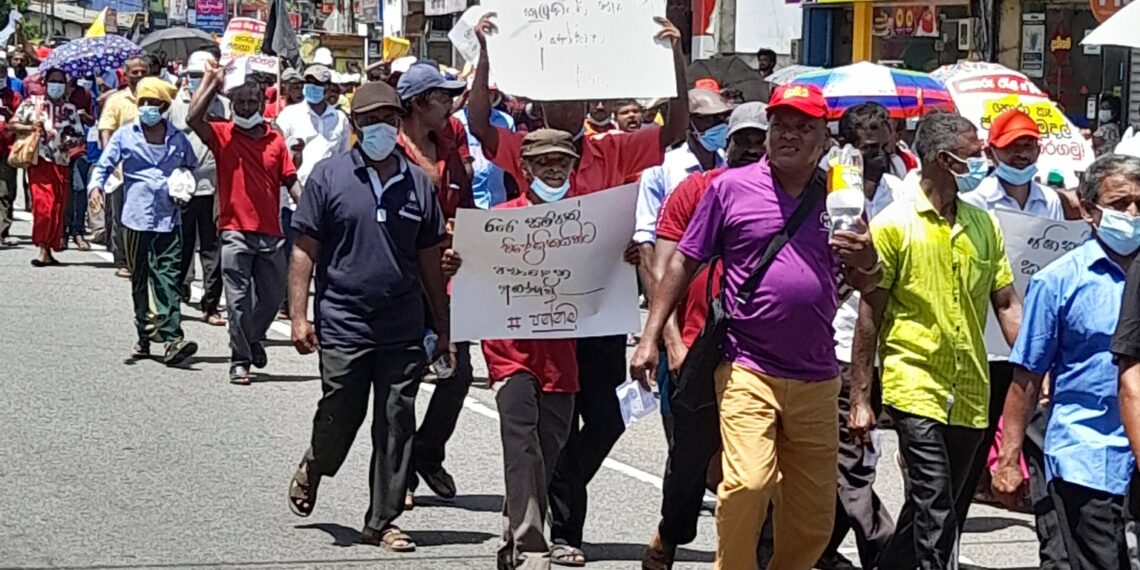In the backdrop of public protests in Sri Lanka, Harsha De Silva, MP of the opposition Samagi Jana Balawegaya, spoke to TOI in Colombo:
How would you sum up the crisis?
It is a political, economic and social crisis like never before.
What were the early warning signs that the government missed?
Immediately after the presidential election in 2019, ahead of the parliamentary election, they cut taxes by almost a third. The rating agencies changed their outlook from ‘stable’ to ‘negative’, but the government ignored it and started printing currency. And the downgrades kept coming. Denial was their strategy. And it blew up into this.
Did the government fail to seek the right advice?
Absolutely. While we were in an unstable macro situation, unable to control inflation and exchange rates, besides being in the middle of a pandemic, the president, against expert advice, banned import of chemical fertilisers. And now the harvest of tea, export crops, plantation crops, grains and rice are down by 50%. IMF was willing to give us reserves to try and hold the Sri Lankan rupee at 230 (against the US dollar), which they said was the level it was going to fall to. But then it kept dropping and today we are at 330. The government was utterly negligent, inconceivably idiotic. This is a case study of how not to run a country.
Why did the government delay approaching the International Monetary Fund?
I don’t understand why they delayed it. Every independent economist in Sri Lanka and abroad advised the president that he should do it (approach the World Bank). But certain people, particularly, former central bank governor Ajith Nivard Cabraal (who resigned on April 4) and Basil Rajapaksa (former finance minister) thought they had some home-grown solution. I think they misdiagnosed the problem; or they diagnosed it, but didn’t want to accept the reality. They kept saying this is a liquidity problem. There was also a liquidity problem, but the bigger problem was a solvency problem. These people have been utterly negligent.
Do you think there should be war-like action?
Yes. The only positive thing is that they have now appointed a professional as the governor of the central bank (P Nandalal Weerasinghe). The first thing he did after taking charge was to raise key interest rates by 700 basis points (7 percentage points) – a first. And, the opposition, not wanting to play politics at this time, supported him. A three-member advisory group on multilateral engagement and debt sustainability to advise the president has been constituted. It includes former governor of the central bank Indrajit Coomaraswamy, former chief economist of World Bank Shanta Devarajan and former director of the Institute of Capacity Development of the IMF Institute Sharmini Coorey.
Do you think India should help more? If so, how?
As a citizen of Sri Lanka, I must tell you the people of our country are thankful to the people of India. They have come to our help when we needed it the most. If India didn’t postpone what are called these Asian clearing union credits, that is payment for goods purchased coming due, we would have defaulted on some other loan three months ago. They have given us credit to buy food and medicine, given us credit to buy fuel. It is embarrassing for us to ask for food and medicines from anyone. It is tough for us, but we will come out of this and we will rise much faster.
Why did the opposition reject the president’s move to form a unity government involving opposition members?
The country is saying ‘Go home Gota’. How can we go against such sentiments? We said we are willing to take over the government and turn around the situation. We have the skills, the people, the connections. The way out now is by invoking the 21st amendment of the constitution to abolish the executive presidency. For this we need the support of two-thirds in parliament and a referendum. If Gotabaya agrees to that, a pathway will open to reset the economy. The referendum can happen along with a general election. Crises create opportunities. This is a good time to fulfil the promise of almost every presidential candidate since 1994 – Chandrika, Mahinda, Sirisena – to get rid of this concentration of power in one individual.
Can you give us a preview of the economic blueprint your team is working on?
First, we need to stabilise the macro-economy. We need to rein in inflation, hold the currency and have some meaningful intrastat. We should restructure jobs. We should revise taxes, rationalise expenditure, remove the stranglehold of government in the market by liberalising the trade and investment policy. We should focus on social safety banks because lower income people are getting hammered.


